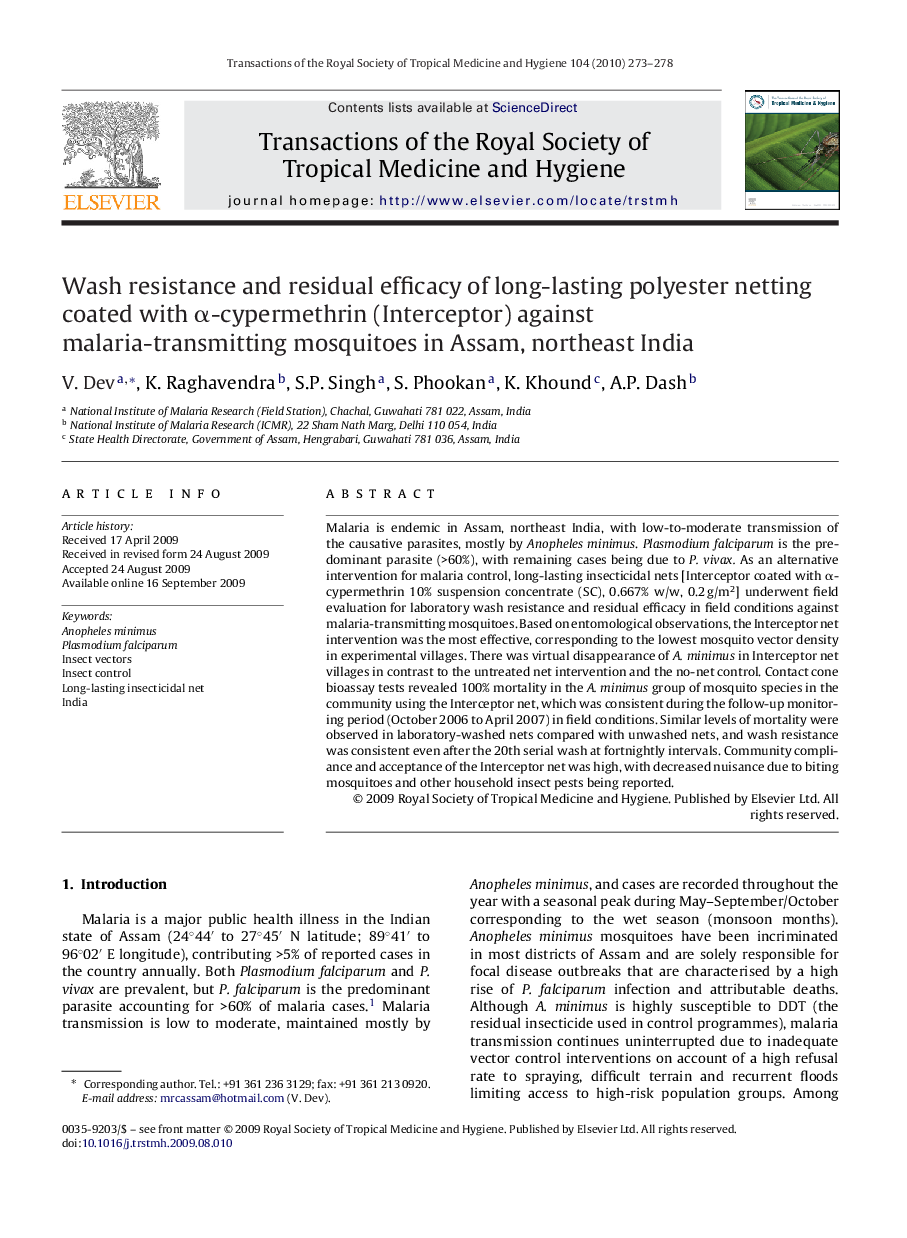| Article ID | Journal | Published Year | Pages | File Type |
|---|---|---|---|---|
| 3420688 | Transactions of the Royal Society of Tropical Medicine and Hygiene | 2010 | 6 Pages |
Abstract
Malaria is endemic in Assam, northeast India, with low-to-moderate transmission of the causative parasites, mostly by Anopheles minimus. Plasmodium falciparum is the predominant parasite (>60%), with remaining cases being due to P. vivax. As an alternative intervention for malaria control, long-lasting insecticidal nets [Interceptor coated with α-cypermethrin 10% suspension concentrate (SC), 0.667% w/w, 0.2 g/m2] underwent field evaluation for laboratory wash resistance and residual efficacy in field conditions against malaria-transmitting mosquitoes. Based on entomological observations, the Interceptor net intervention was the most effective, corresponding to the lowest mosquito vector density in experimental villages. There was virtual disappearance of A. minimus in Interceptor net villages in contrast to the untreated net intervention and the no-net control. Contact cone bioassay tests revealed 100% mortality in the A. minimus group of mosquito species in the community using the Interceptor net, which was consistent during the follow-up monitoring period (October 2006 to April 2007) in field conditions. Similar levels of mortality were observed in laboratory-washed nets compared with unwashed nets, and wash resistance was consistent even after the 20th serial wash at fortnightly intervals. Community compliance and acceptance of the Interceptor net was high, with decreased nuisance due to biting mosquitoes and other household insect pests being reported.
Keywords
Related Topics
Life Sciences
Immunology and Microbiology
Applied Microbiology and Biotechnology
Authors
V. Dev, K. Raghavendra, S.P. Singh, S. Phookan, K. Khound, A.P. Dash,
